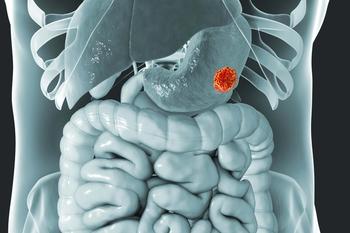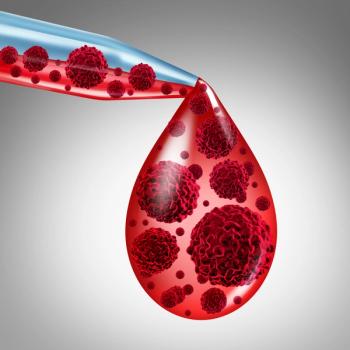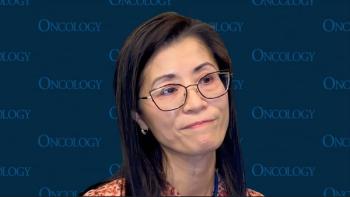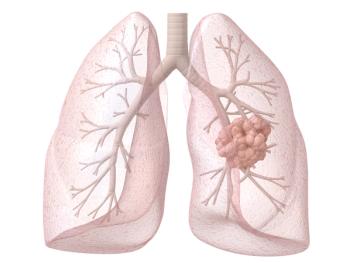
Disitamab vedotin, toripalimab, and trastuzumab demonstrated superior response rates and efficacy in HER2-overexpressing metastatic gastric cancers.

Your AI-Trained Oncology Knowledge Connection!


Disitamab vedotin, toripalimab, and trastuzumab demonstrated superior response rates and efficacy in HER2-overexpressing metastatic gastric cancers.

Data from the ROSELLA trial may support relacorilant plus nab-paclitaxel as a new standard in this ovarian cancer population.

Subgroup data from the CEPHEUS trial reinforce daratumumab plus bortezomib, lenalidomide, and dexamethasone as a standard of care in this population.

EBC-129 was well tolerated, with a safety profile consistent with other MMAE-based ADCs in patients with PDAC and other solid tumors.

Data from KEYNOTE-A18 support pembrolizumab plus concurrent chemoradiotherapy as a standard of care in this cervical cancer population.

Most patients who received COCOON dermatologic management reported mild or no dermatologic symptoms following treatment with amivantamab/lazertinib.

Researchers demonstrated that haplo-HSCT, combined with post-transplant cyclophosphamide, is a feasible and effective treatment for hematologic malignancies even in resource-limited settings.

Researchers conducted a prospective, multicenter phase II clinical trial demonstrating that prolonged administration of ruxolitinib after allogeneic HCT is associated with notably low rates of cGVHD.

“Higher pretreatment HER2 amplicon mRNA signature and HER2 protein expression predicted improved outcomes with T-DXd for [metastatic breast cancer],” Paolo Tarantino, MD, PhD, said.

The median PFS with dostarlimab plus niraparib was 20.6 months vs 19.2 months with niraparib alone in patients with treatment-naive advanced ovarian cancer.

Safety and efficacy were noted with LB2102 for patients with small cell lung cancer and large cell neuroendocrine carcinoma.

Phase 3 VERIFY study findings showed rusfertide maintained a manageable safety profile consistent with previous studies.

Efficacy and safety outcomes in the phase 3 CONTACT-03 study were consistent regardless of patients' prior immunotherapy or tyrosine kinase inhibitor use.

SBRT did not significantly impact response when added to nivolumab/ipilimumab for patients with mCRPC.

Neoadjuvant alectinib met the primary end point with a major pathologic response rate of 42% in patients with potentially resectable stage III NSCLC.

The dual high-affinity binding observed with ISB 2001 may avoid resistance mechanisms reported with other BCMA-targeted therapies.

Subgroup data from CARTITUDE-4 suggest that cilta-cel may overcome the poor prognosis associated with some high-risk features in multiple myeloma.

PFS was improved with belantamab mafodotin triplet for patients with relapsed/refractory multiple myeloma with high-risk cytogenetics.

Data from DESTINY-Breast09 may support trastuzumab deruxtecan plus pertuzumab as a frontline standard of care in HER2-positive advanced breast cancer.

Professor of pharmacology Eric Winer, MD, spoke about a publication he authored exploring the state of oncologist burnout and how it impacts practice.

A survival benefit was noted when elraglusib was added to chemotherapy for patients with metastatic PDAC.

Data from the phase 3 NATALEE trial confirms ribociclib plus NSAI consistently improves survival outcomes in stage II/III HR+/HER2– early breast cancer patients, regardless of age or menopausal status.

The safety profile of talquetamab continued to show a lower high-grade infection risk relative to other approved anti-BCMA bispecific antibodies.

Data from SACHI support savolitinib/osimertinib as a chemotherapy-free option in previously treated EGFR-mutated NSCLC harboring a MET amplification.

Results from HERTHENA-Lung02 did not show improved OS with HER3-DXd for patients with EGFR-mutated NSCLC.


Among 2 patient subgroups with advanced, HER2-mutant non–small cell lung cancer, sevabertinib showed comparable objective response rates.

The safety profile for glofitamab plus gemcitabine and oxaliplatin in diffuse large B-cell lymphoma was consistent with known risks for individual drugs.

Data from the NeoSTAR trial showed no new safety signals with sacituzumab govitecan plus pembrolizumab for early-stage triple-negative breast cancer.

The use of chemotherapy trended toward improved recurrence-free intervals in older patients with high-risk tumors as determined via the MammaPrint assay.